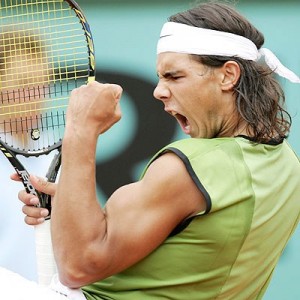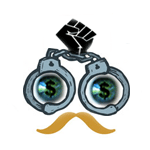888 issues profit warning, opens possibility of hostile takeover

Gaming group 888 has had a difficult 2010 and it seems things are only going to get worse. After releasing a profit warning showing that poker turnover had decreased by 18% between January and May, 888 now anticipates losing even more business during the 2010 World Cup this summer. While 888 blames an industry-wide decline, currency fluctuation and even illegal casino operators for their woes, some financial experts wonder if 888 is ripe for a takeover.
The Guardian: Gaming group 888 could attract predators after profit warning
After a gloomy warning from 888 spokespeople regarding revenue between January and May, the company has left itself vulnerable to takeover. Following up on a similar negative forecast released in April, 888 showed that the number of players at its poker website dropped by about 18% in the first five months of 2010.
Though 888 believes the downward trend to be industry-wide and that its own program of cost-cutting must be adhered to, spokesmen maintained that 888 would continue its strategy of acquisition – a plan 888 seems to be incapable of at present.
Rumors that bigger companies Party Gaming and/or Ladbrokes might make a bid at a takeover of 888 emerged while 888 stocks lost 21% of value on the day of the announcement to finish trading at 53.25p. Greg Johnson of investment banking services provider Shore Capital stated that Ladbrokes “needs greater scale in its online operation, in our view,” making 888 operation a perfect match.
This is London: 888 will spend World Cup behind the sofa as it predicts strain on profits
Internet casino 888 warned that the upcoming World Cup would actually be bad for its business, as its staple poker players are expected to be spending less time and money at the online poker tables and instead devote more energy to football. “Online gaming trading during the period of the World Cup will be difficult,” said 888 CEO Gigi Levy as he announced the profit warning.
Levy also stated that profits for 888 in year 2010 would be “significantly lower than previous market expectations” of $45.5 million.
As for the current drop in poker business at 888, illegal online operators in America were blamed for eating into profits, though the numbers show that high-rollers visit the site less frequently than ever. Levy also blamed currency fluctuation for its financial woes, stating that $5 million in revenue had been lost in 2010 so far because of exchange rates: Though 888 does most business in euros and pounds sterling, revenue is reported in terms of U.S. dollars.
The (London) Express: 888’s World Cup Fears
Online gaming company 888 Holdings issued a warning on profits yesterday in anticipation of casino gamers deserting the site to turn attention to the 2010 World Cup tournament: “Instead of staying in and using 888,” said one 888 spokesman, “people are more likely to go down the pub and watch the football.”
A pair of financial analysts offered harsh assessments of 888’s current financial state. One unnamed analyst stated that “The potential for 888 to be acquired has diminished,” while James Hollins of corporate advisory firm Daniel Stewart & Co. said that “888’s weak poker offering and lack of significant sports offering has worked against it.”

Gaming group 888 has had a difficult 2010 and it seems things are only going to get worse. After releasing a profit warning showing that poker turnover had decreased by 18% between January and May, 888 now anticipates losing even more business during the 2010 World Cup this summer. While 888 blames an industry-wide decline, currency fluctuation and even illegal casino operators for their woes, some financial experts wonder if 888 is ripe for a takeover.
The Guardian: Gaming group 888 could attract predators after profit warning
After a gloomy warning from 888 spokespeople regarding revenue between January and May, the company has left itself vulnerable to takeover. Following up on a similar negative forecast released in April, 888 showed that the number of players at its poker website dropped by about 18% in the first five months of 2010.
Though 888 believes the downward trend to be industry-wide and that its own program of cost-cutting must be adhered to, spokesmen maintained that 888 would continue its strategy of acquisition – a plan 888 seems to be incapable of at present.
Rumors that bigger companies Party Gaming and/or Ladbrokes might make a bid at a takeover of 888 emerged while 888 stocks lost 21% of value on the day of the announcement to finish trading at 53.25p. Greg Johnson of investment banking services provider Shore Capital stated that Ladbrokes “needs greater scale in its online operation, in our view,” making 888 operation a perfect match.
This is London: 888 will spend World Cup behind the sofa as it predicts strain on profits
Internet casino 888 warned that the upcoming World Cup would actually be bad for its business, as its staple poker players are expected to be spending less time and money at the online poker tables and instead devote more energy to football. “Online gaming trading during the period of the World Cup will be difficult,” said 888 CEO Gigi Levy as he announced the profit warning.
Levy also stated that profits for 888 in year 2010 would be “significantly lower than previous market expectations” of $45.5 million.
As for the current drop in poker business at 888, illegal online operators in America were blamed for eating into profits, though the numbers show that high-rollers visit the site less frequently than ever. Levy also blamed currency fluctuation for its financial woes, stating that $5 million in revenue had been lost in 2010 so far because of exchange rates: Though 888 does most business in euros and pounds sterling, revenue is reported in terms of U.S. dollars.
The (London) Express: 888’s World Cup Fears
Online gaming company 888 Holdings issued a warning on profits yesterday in anticipation of casino gamers deserting the site to turn attention to the 2010 World Cup tournament: “Instead of staying in and using 888,” said one 888 spokesman, “people are more likely to go down the pub and watch the football.”
A pair of financial analysts offered harsh assessments of 888’s current financial state. One unnamed analyst stated that “The potential for 888 to be acquired has diminished,” while James Hollins of corporate advisory firm Daniel Stewart & Co. said that “888’s weak poker offering and lack of significant sports offering has worked against it.”
Paddy Power oil spill extinction odds draw criticism
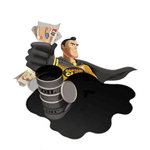
As the BP oil disaster unfolds in the Gulf of Mexico, Irish internet sportsbook Paddy Power is offering odds on which species the oil will drive to extinction first. Some have called the offerings irresponsible, saying that the attempt to profit from the disaster is in bad taste. Paddy Power responded by saying that they offer the odds in hopes of bringing attention to the issue.
The Wall Street Journal: Paddy Power Seeks To Cash In On Marine Life Extinction
Paddy Power may have crossed the line. In a recent press release entitled “Ridley Turtle Tipped For Oily Exit” Ireland’s biggest online sportsbook announced odds on which marine species will be the first to become extinct due to the oil spill disaster in the Gulf of Mexico.
Paddy Power insists that they are only trying to bring attention to the responsibilities of oil companies.
“The oil spill seems to be going from bad to worse with no end in sight,” says a spokesman for Paddy Power said, who denied that the extinction odds were in bad taste. “Hopefully our odds will bring home the imminent danger to such a varied mix of species dependent on the ocean.”
Unfortunately these words clash with the the tone of Paddy Power’s press release, which inserts humor in all the wrong places. For example, the statement quips about the Kemp’s Ridley Turtle, saying the fact that the species migrates through the Gulf of Mexico this time of year is “spectacularly bad luck”.
This is obviously a publicity stunt, and Paddy Power’s bottom line is to make money. Unfortunately, the fact remains that BP’s pipeline has yet to be fixed, and everyone involved is side-stepping the issue, refusing to accept responsibility.
New York Times: Website Offers Betting on Spill-Related Extinctions of Gulf Species
The online sports betting site Paddy Power is offering odds today on which marine species would be first to go extinct due to BP’s ruptured oil well in the Gulf of Mexico.
The Kemp’s ridley turtle, already an endangered species, is favored to go first. A $5 bet on the turtle would win $9 if it becomes extinct because of the spill. Other species like the gulf sturgeon, smalltooth sawfish and elkhorn coral have less probable odds, paying out at rates of 20-to-1.
Paddy Power hopes the offer will bring attention to the fact that the spill is an environmental catastrophe that will likely lead to the extinction of one or more species in the Gulf.
“We kind of have a very simple philosophy at Paddy Power — within reason if there is a very newsworthy event that are people are talking about, people should be allowed to back up their opinion with some cash,” said spokesman Ken Robertson.
The Chronicle Herald: Ruptured oil well threatens bluefin tuna
The oil spill in the Gulf of Mexico is threatening the Atlantic bluefin tuna, raising concerns about the future of the species in Atlantic Canada. The fish breed in the Gulf, but then follow the Gulf Stream north, along the Nova Scotia coast.
“There is an important rod-and-reel fishery and a significant tourism industry associated with the great fish during the fall season in the Maritimes,” said Reg Hartlen at H&H Fisheries in Eastern Passage.
Many people associated with Canada’s fishing industry first heard about the threat to the bluefin when Paddy Power online sportsbook gave odds on which species would become extinct first because of the disaster. The bluefin is listed as second most likely to face extinction, right after the Kemp’s ridley turtle.
“Anybody who knows anything at all about the importance of the gulf region to our fishery is watching this situation very closely,” said Stephen Kiley, a former Shad Bay charter boat captain.
“One of the worst environmental nightmares of our time is unfolding right now in the gulf. We’ll be living with it for years.”


As the BP oil disaster unfolds in the Gulf of Mexico, Irish internet sportsbook Paddy Power is offering odds on which species the oil will drive to extinction first. Some have called the offerings irresponsible, saying that the attempt to profit from the disaster is in bad taste. Paddy Power responded by saying that they offer the odds in hopes of bringing attention to the issue.
The Wall Street Journal: Paddy Power Seeks To Cash In On Marine Life Extinction
Paddy Power may have crossed the line. In a recent press release entitled “Ridley Turtle Tipped For Oily Exit” Ireland’s biggest online sportsbook announced odds on which marine species will be the first to become extinct due to the oil spill disaster in the Gulf of Mexico.
Paddy Power insists that they are only trying to bring attention to the responsibilities of oil companies.
“The oil spill seems to be going from bad to worse with no end in sight,” says a spokesman for Paddy Power said, who denied that the extinction odds were in bad taste. “Hopefully our odds will bring home the imminent danger to such a varied mix of species dependent on the ocean.”
Unfortunately these words clash with the the tone of Paddy Power’s press release, which inserts humor in all the wrong places. For example, the statement quips about the Kemp’s Ridley Turtle, saying the fact that the species migrates through the Gulf of Mexico this time of year is “spectacularly bad luck”.
This is obviously a publicity stunt, and Paddy Power’s bottom line is to make money. Unfortunately, the fact remains that BP’s pipeline has yet to be fixed, and everyone involved is side-stepping the issue, refusing to accept responsibility.
New York Times: Website Offers Betting on Spill-Related Extinctions of Gulf Species
The online sports betting site Paddy Power is offering odds today on which marine species would be first to go extinct due to BP’s ruptured oil well in the Gulf of Mexico.
The Kemp’s ridley turtle, already an endangered species, is favored to go first. A $5 bet on the turtle would win $9 if it becomes extinct because of the spill. Other species like the gulf sturgeon, smalltooth sawfish and elkhorn coral have less probable odds, paying out at rates of 20-to-1.
Paddy Power hopes the offer will bring attention to the fact that the spill is an environmental catastrophe that will likely lead to the extinction of one or more species in the Gulf.
“We kind of have a very simple philosophy at Paddy Power — within reason if there is a very newsworthy event that are people are talking about, people should be allowed to back up their opinion with some cash,” said spokesman Ken Robertson.
The Chronicle Herald: Ruptured oil well threatens bluefin tuna
The oil spill in the Gulf of Mexico is threatening the Atlantic bluefin tuna, raising concerns about the future of the species in Atlantic Canada. The fish breed in the Gulf, but then follow the Gulf Stream north, along the Nova Scotia coast.
“There is an important rod-and-reel fishery and a significant tourism industry associated with the great fish during the fall season in the Maritimes,” said Reg Hartlen at H&H Fisheries in Eastern Passage.
Many people associated with Canada’s fishing industry first heard about the threat to the bluefin when Paddy Power online sportsbook gave odds on which species would become extinct first because of the disaster. The bluefin is listed as second most likely to face extinction, right after the Kemp’s ridley turtle.
“Anybody who knows anything at all about the importance of the gulf region to our fishery is watching this situation very closely,” said Stephen Kiley, a former Shad Bay charter boat captain.
“One of the worst environmental nightmares of our time is unfolding right now in the gulf. We’ll be living with it for years.”

Australian punters prop up profitable quarter for Sportingbet

Though still affected by the slumping worldwide economy, Sportingbet representatives were recently quite happy to announce the sportsbook’s profitable third-quarter results for the fiscal year. Key markets of Spain and Greece were unimpressive for Sportingbet, but a large influx from Australia proved to be the financial difference. The next year may be a bit difficult for the bookmaker, though, as new gambling laws in France are forcing the company’s withdrawal from that market.
Interactive Investor: Australia drives Sportingbet Q3
For the third quarter of its fiscal year, Sportingbet reported net gaming revenue to be up 29.8 percent to £55.7 million. Total bets in the period ending in April increased 22 percent to £521 million (approximately $750 million) wagered.
“Given the widely reported economic difficulties in Spain and Greece, which are two of our biggest markets,” said Sportingbet CEO Andrew McIver, “it is pleasing to report an 18 percent increase in profits.” Sportingbet business in Greece increased 8 percent, while Spain was stagnant for the bookmaker.
Sportingbet shares, which earlier in the week had hit a nine-month low at 57.5p, had rebounded by 3.7 percent to 62.5p on the morning of the announcement of results, valuing the company at £307 million.
McIver cited the advantages of geographical diversification business, and added that the company’s fourth quarter would be focused on the World Cup, repeating his comments of May that “much of how the remainder of this quarter performs will depend on the outcome of (the World Cup).”
In addressing next year’s results, Sportingbet stated that it would no longer be accepting bets from French players in light of the new licensing regulations for offshore online casino owners there. Sportingbet will apply for licensing in France, but due to the time involved plus some permanent loss of revenue, fiscal year 2011 is expected to be down for Sportingbet.
Financial Times: Australian profits drive Sportingbet
Since the Australian market showed in 19 percent raise in gross amount wagered in the third quarter of the fiscal year, Sportingbet was able to report a 13 percent jump in pre-tax profits.
Australian wagering at Sportingbet increased from £153.2 million to £182.1 million. Reasons given for the profitable quarter in Australia included “horse racing results that favored the bookmaker” and liberalization of advertising regulations in the country.
Sportingbet also reported weak intake from Spain and Greece, two markets that make up about 33 percent of Sportingbet revenue. For comparison, the bookmaker draws about 5 percent of its business from the U.K.
Sportingbet representatives also reported that they anticipate a further increase in revenues in the fourth quarter because of World Cup betting. Betting on soccer makes up 61 percent of sportsbook activity at Sportingbet.
Stock Markets Review: Sportingbet report Strong Q3 for sports and casino
Sportingbet’s fiscal results for quarter three were reported as strong, with net gaming revenue increasing 30 percent year-on-year (or 27 percent with exchange rate fluctuation taken into account). In addition to the excellent results in Australia, sports and casino growth in Europe was also called “strong.”
For Sportingbet, European sportsbook activity increased 21 percent YoY to £29.1 million. Casino gaming was up 17 percent to £11.6 million, with particular good results for the Sportingbet flash casino. Poker gaming at Sportingbet was down 10 percent YoY to £4.5 million.
With regard to the French market, Sportingbet indicated that it expected to receive sports, horseracing and poker licenses in early 2011 and that the company had already entered into marketing partnerships to advertise in “Le Monde” and “L’Express” newspapers.


Though still affected by the slumping worldwide economy, Sportingbet representatives were recently quite happy to announce the sportsbook’s profitable third-quarter results for the fiscal year. Key markets of Spain and Greece were unimpressive for Sportingbet, but a large influx from Australia proved to be the financial difference. The next year may be a bit difficult for the bookmaker, though, as new gambling laws in France are forcing the company’s withdrawal from that market.
Interactive Investor: Australia drives Sportingbet Q3
For the third quarter of its fiscal year, Sportingbet reported net gaming revenue to be up 29.8 percent to £55.7 million. Total bets in the period ending in April increased 22 percent to £521 million (approximately $750 million) wagered.
“Given the widely reported economic difficulties in Spain and Greece, which are two of our biggest markets,” said Sportingbet CEO Andrew McIver, “it is pleasing to report an 18 percent increase in profits.” Sportingbet business in Greece increased 8 percent, while Spain was stagnant for the bookmaker.
Sportingbet shares, which earlier in the week had hit a nine-month low at 57.5p, had rebounded by 3.7 percent to 62.5p on the morning of the announcement of results, valuing the company at £307 million.
McIver cited the advantages of geographical diversification business, and added that the company’s fourth quarter would be focused on the World Cup, repeating his comments of May that “much of how the remainder of this quarter performs will depend on the outcome of (the World Cup).”
In addressing next year’s results, Sportingbet stated that it would no longer be accepting bets from French players in light of the new licensing regulations for offshore online casino owners there. Sportingbet will apply for licensing in France, but due to the time involved plus some permanent loss of revenue, fiscal year 2011 is expected to be down for Sportingbet.
Financial Times: Australian profits drive Sportingbet
Since the Australian market showed in 19 percent raise in gross amount wagered in the third quarter of the fiscal year, Sportingbet was able to report a 13 percent jump in pre-tax profits.
Australian wagering at Sportingbet increased from £153.2 million to £182.1 million. Reasons given for the profitable quarter in Australia included “horse racing results that favored the bookmaker” and liberalization of advertising regulations in the country.
Sportingbet also reported weak intake from Spain and Greece, two markets that make up about 33 percent of Sportingbet revenue. For comparison, the bookmaker draws about 5 percent of its business from the U.K.
Sportingbet representatives also reported that they anticipate a further increase in revenues in the fourth quarter because of World Cup betting. Betting on soccer makes up 61 percent of sportsbook activity at Sportingbet.
Stock Markets Review: Sportingbet report Strong Q3 for sports and casino
Sportingbet’s fiscal results for quarter three were reported as strong, with net gaming revenue increasing 30 percent year-on-year (or 27 percent with exchange rate fluctuation taken into account). In addition to the excellent results in Australia, sports and casino growth in Europe was also called “strong.”
For Sportingbet, European sportsbook activity increased 21 percent YoY to £29.1 million. Casino gaming was up 17 percent to £11.6 million, with particular good results for the Sportingbet flash casino. Poker gaming at Sportingbet was down 10 percent YoY to £4.5 million.
With regard to the French market, Sportingbet indicated that it expected to receive sports, horseracing and poker licenses in early 2011 and that the company had already entered into marketing partnerships to advertise in “Le Monde” and “L’Express” newspapers.

UEFA’s probe into match-fixing scandal reaches Hungary and Switzerland

The bitter fruit of soccer governing body UEFA’s labor is blooming in a Europe-wide probe across 12 countries to determine to what extent matches are being fixed for gambling purposes. It appears impossible to say whether UEFA’s efforts will or even can succeed before the 2010 World Cup kicks off in South Africa on June 11.
Sydney Morning Herald: Nine Swiss footballers suspended
Switzerland’s national soccer association has suspended nine players, including five for an indefinite period, for match-fixing as part of the Europe-wide UEFA probe.
The national league board said in a statement that “The Swiss Football Association is, according to current information, the first and only federation which has treated in the consequent manner the suspects of match-fixing made public in autumn 2009.”
None of the nine players suspended were in the top division of Switzerland football. The four players given sentences were banned from Swiss soccer for between 12 and 36 months.
The suspensions were the result of 50 raids in November in Austria, Britain, Germany and Switzerland in the probe’s first big move. In these 50 actions, over €1 million was seized. UEFA official stated that “Without doubt this is the biggest scam there has ever been in European football.”
Sports Illustrated: UEFA quizzes players at Hungarian champion Debrecen over suspected match-fixing
UEFA officials recently questioned eight players of Hungarian league champion Debrecen, which lost all six of its Champions League matches to Fiorentina, Liverpool and Lyon in the 2009-10 season, for which the club earned €9.2 million.
Though UEFA offered no comment as to the extent or subject matter of the discussion, Debrecen official Csaba Bartha did not make much of it, writing on the official club website that “the degree of seriousness of the matter is reflected by the fact that they didn’t even [transcribe] the statements.”
Debrecen is the second Hungarian club to come into question in this particular investigation, after UEFA looked into a suspicious Honvéd loss in November. More than 200 games are being considered for the possibility of match fixing in the UEFA investigation.
USA Today: World Cup arrives amid global match-fixing probes
Referees in Bosnia and Ukraine have been banned for life as part of a UEFA probe in a season when fixing matches has “spread more widely through football than ever.” UEFA President Michel Platini described the situation as seriously enough to put the sport itself in “mortal danger.”
Another threat to the integrity of soccer has arisen aside from the existing match-fixing problems has appeared as well. English Football Association chairman David Triesman stated that Russian criminal elements would be attempting to bribe referees to favor Spain in exchange for Spain’s support of the Russian bid to host the 2018 World Cup.
To prevent scandal from tainting the 2010 World Cup, FIFA officials created the company Early Warning, which would monitor any suspicious activity online concerning match outcomes. The World Cup is expected to generate about $3.4 billion for FIFA.
China is also taking on corruption in soccer at home, arresting among others Chinese Football Federation head Nan York and former World Cup referee Lu Jun.
The UEFA probe first began last year, when a “nest of corruption” was revealed to have involved matches in four World Cup nations (Germany, Greece, Slovenia, Switzerland) and six others (Austria, Belgium, Bosnia, Croatia, Hungary and Turkey).


The bitter fruit of soccer governing body UEFA’s labor is blooming in a Europe-wide probe across 12 countries to determine to what extent matches are being fixed for gambling purposes. It appears impossible to say whether UEFA’s efforts will or even can succeed before the 2010 World Cup kicks off in South Africa on June 11.
Sydney Morning Herald: Nine Swiss footballers suspended
Switzerland’s national soccer association has suspended nine players, including five for an indefinite period, for match-fixing as part of the Europe-wide UEFA probe.
The national league board said in a statement that “The Swiss Football Association is, according to current information, the first and only federation which has treated in the consequent manner the suspects of match-fixing made public in autumn 2009.”
None of the nine players suspended were in the top division of Switzerland football. The four players given sentences were banned from Swiss soccer for between 12 and 36 months.
The suspensions were the result of 50 raids in November in Austria, Britain, Germany and Switzerland in the probe’s first big move. In these 50 actions, over €1 million was seized. UEFA official stated that “Without doubt this is the biggest scam there has ever been in European football.”
Sports Illustrated: UEFA quizzes players at Hungarian champion Debrecen over suspected match-fixing
UEFA officials recently questioned eight players of Hungarian league champion Debrecen, which lost all six of its Champions League matches to Fiorentina, Liverpool and Lyon in the 2009-10 season, for which the club earned €9.2 million.
Though UEFA offered no comment as to the extent or subject matter of the discussion, Debrecen official Csaba Bartha did not make much of it, writing on the official club website that “the degree of seriousness of the matter is reflected by the fact that they didn’t even [transcribe] the statements.”
Debrecen is the second Hungarian club to come into question in this particular investigation, after UEFA looked into a suspicious Honvéd loss in November. More than 200 games are being considered for the possibility of match fixing in the UEFA investigation.
USA Today: World Cup arrives amid global match-fixing probes
Referees in Bosnia and Ukraine have been banned for life as part of a UEFA probe in a season when fixing matches has “spread more widely through football than ever.” UEFA President Michel Platini described the situation as seriously enough to put the sport itself in “mortal danger.”
Another threat to the integrity of soccer has arisen aside from the existing match-fixing problems has appeared as well. English Football Association chairman David Triesman stated that Russian criminal elements would be attempting to bribe referees to favor Spain in exchange for Spain’s support of the Russian bid to host the 2018 World Cup.
To prevent scandal from tainting the 2010 World Cup, FIFA officials created the company Early Warning, which would monitor any suspicious activity online concerning match outcomes. The World Cup is expected to generate about $3.4 billion for FIFA.
China is also taking on corruption in soccer at home, arresting among others Chinese Football Federation head Nan York and former World Cup referee Lu Jun.
The UEFA probe first began last year, when a “nest of corruption” was revealed to have involved matches in four World Cup nations (Germany, Greece, Slovenia, Switzerland) and six others (Austria, Belgium, Bosnia, Croatia, Hungary and Turkey).

Hong Kong, Indonesia, Malaysia cops fight illegal World Cup betting

With just a couple of weeks remaining until World Cup 2010 kicks off in South Africa, law enforcement agencies all over the world are getting ready for a potentially unprecedented amount of illegal gambling. Recently, police chiefs and other lawmen have been announcing their plans for cracking down on such activities in their home countries.
People’s Daily: HK police to intensify crackdown on illegal football betting, drink driving during World Cup
Tsang Tak-sing, Hong Kong’s secretary for the Home Affairs Bureau, stated this week that Hong Kong police would be intensifying law enforcement against both illegal betting and drink driving while the World Cup is being played. The Organized Crime and Triad Bureau is coordinating the efforts of the various regional agencies involved in the operation.
Hong Kong police have reportedly also been watching Internet gambling activity and are employing “cyber patrols” in an effort to fight illegal football betting online. Law enforcement actions may even take place outside of Hong Kong, should sufficient evidence be gathered linking such non-domestic websites to appealing to Hong Kong citizens.
Tsang also reported that Hong Kong police had arrested seven people in four different raids, with illegal gambling activities involved worth over HK$550,000 (approximately $70,500) in the first three months of this year.
Jakarta Post: Police on lookout for gambling ahead of Cup
Jakarta police authorities have announced their intensification of Internet surveillance in order to stop alleged online gambling, going so far as to monitor Facebook and other social networking sites.
Explained Jakarta police spokesman Sr. Commander Boy Rafli Amar, “We will find out whether virtual poker games played on social networking sites … involve gambling.”
In early May, two websites – IBCbet.com and Casino.SBObet.com – were shut down and their owner arrested on charges of illegally providing casino games and sports betting within Indonesia. The sites were thought to be making some $55,500 per day before the police action.
Bernama: Police To Combat Illegal Betting During World Cup
In Malaysia, local law enforcement agency CID has formed a distinct unit to deal specifically with illegal betting on the World Cup outcome and individual game results. Having just recently legalized gambling in the country, Malaysian police will now be concentrating on the unlicensed operators.
CID Chief Datuk Seri Bakri Zinin stated that even though the Malaysian government had issued gaming licenses to allow legal wagering during the 2010 World Cup, illegal betting syndicates will certainly take the opportunity to rake in profits illegally. “Anyone found betting or accepting such bets will be charged,” said Bakri, “and that also includes online betting.”
Bakri also stated that his taskforce would be looking for various forms of betting, as syndicates would devise many forms of betting in order to attract gamblers. He added that CID officers have already accumulated a list of suspects and probable operating locations in Malaysia.


With just a couple of weeks remaining until World Cup 2010 kicks off in South Africa, law enforcement agencies all over the world are getting ready for a potentially unprecedented amount of illegal gambling. Recently, police chiefs and other lawmen have been announcing their plans for cracking down on such activities in their home countries.
People’s Daily: HK police to intensify crackdown on illegal football betting, drink driving during World Cup
Tsang Tak-sing, Hong Kong’s secretary for the Home Affairs Bureau, stated this week that Hong Kong police would be intensifying law enforcement against both illegal betting and drink driving while the World Cup is being played. The Organized Crime and Triad Bureau is coordinating the efforts of the various regional agencies involved in the operation.
Hong Kong police have reportedly also been watching Internet gambling activity and are employing “cyber patrols” in an effort to fight illegal football betting online. Law enforcement actions may even take place outside of Hong Kong, should sufficient evidence be gathered linking such non-domestic websites to appealing to Hong Kong citizens.
Tsang also reported that Hong Kong police had arrested seven people in four different raids, with illegal gambling activities involved worth over HK$550,000 (approximately $70,500) in the first three months of this year.
Jakarta Post: Police on lookout for gambling ahead of Cup
Jakarta police authorities have announced their intensification of Internet surveillance in order to stop alleged online gambling, going so far as to monitor Facebook and other social networking sites.
Explained Jakarta police spokesman Sr. Commander Boy Rafli Amar, “We will find out whether virtual poker games played on social networking sites … involve gambling.”
In early May, two websites – IBCbet.com and Casino.SBObet.com – were shut down and their owner arrested on charges of illegally providing casino games and sports betting within Indonesia. The sites were thought to be making some $55,500 per day before the police action.
Bernama: Police To Combat Illegal Betting During World Cup
In Malaysia, local law enforcement agency CID has formed a distinct unit to deal specifically with illegal betting on the World Cup outcome and individual game results. Having just recently legalized gambling in the country, Malaysian police will now be concentrating on the unlicensed operators.
CID Chief Datuk Seri Bakri Zinin stated that even though the Malaysian government had issued gaming licenses to allow legal wagering during the 2010 World Cup, illegal betting syndicates will certainly take the opportunity to rake in profits illegally. “Anyone found betting or accepting such bets will be charged,” said Bakri, “and that also includes online betting.”
Bakri also stated that his taskforce would be looking for various forms of betting, as syndicates would devise many forms of betting in order to attract gamblers. He added that CID officers have already accumulated a list of suspects and probable operating locations in Malaysia.







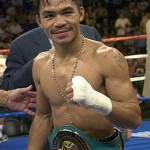 1. Manny “Pacman” Pacquiao
1. Manny “Pacman” Pacquiao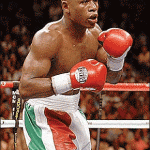 2. Floyd Mayweather Jr.
2. Floyd Mayweather Jr.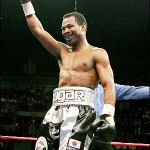 3. “Sugar” Shane Mosley
3. “Sugar” Shane Mosley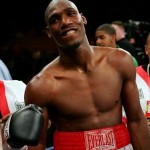 4. Paul Williams
4. Paul Williams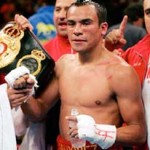 5. Juan Manuel Marquez
5. Juan Manuel Marquez




